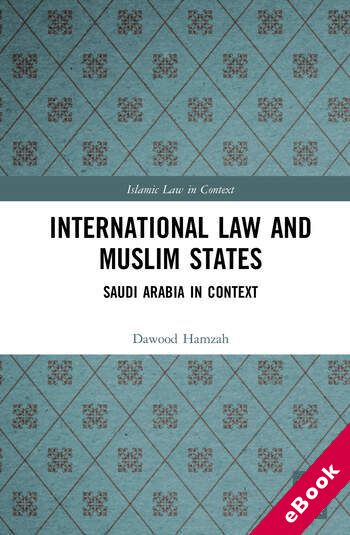
The device(s) you use to access the eBook content must be authorized with an Adobe ID before you download the product otherwise it will fail to register correctly.
For further information see https://www.wildy.com/ebook-formats
Once the order is confirmed an automated e-mail will be sent to you to allow you to download the eBook.
All eBooks are supplied firm sale and cannot be returned. If you believe there is a fault with your eBook then contact us on ebooks@wildy.com and we will help in resolving the issue. This does not affect your statutory rights.
This book analyses the general interaction between international law and Islamic law in the Muslim world today. It engages and interrogates literalist and conservative interpretations of Islamic law which often form the root of the tensions with international law.
The work examines the Saudi Arabia textualist approach to the two primary sources of law in Islam, the Qur’an and Sunnah, and argues that a liberal approach of interpretation has become sine qua non especially now that myriad issues are confronting the Muslim world generally and Saudi Arabia in particular. Similarly, globalization has generated an unprecedented multi-culturalism, legal-pluralism and trans-border interactions in socio-economic and political relations. Therefore, Saudi Arabia, as the bastion of Islam and Islamic nations is faced with the imperative of adopting a liberal approach to interpretation of Islamic law with a view to accommodating a wide spectrum of other laws and cultures.
The book provides a timely examination of the issue of modern Saudi Arabia, Islamic legal order vis-à-vis the contemporary concept of international law and international relations in specific areas such as international human rights law and trans-national economic matters. As such it will be of interest to academics and researchers working in Islamic Law, International and Comparative Law, Human Rights Law and Law and Religion.